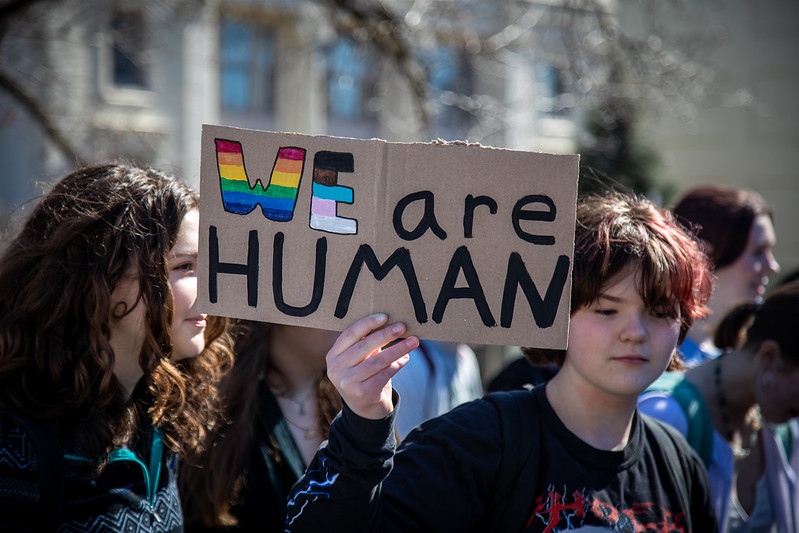
Last week, the Virginia Supreme Court ruled 4-3 that a lawsuit – filed by a teacher fired for refusing to use a transgender student’s correct pronouns for religious reasons, and which had been dismissed by a lower court – should be allowed to proceed. The case will be watched very closely as a bellwether for how similar lawsuits that pit religious freedom against LGBTQ rights will play out.
The teacher, Peter Vleming, sued the school board when he was fired from West Point High School, a public school, for refusing to use a transgender student’s correct pronouns in the French class he taught. School board officials dismissed Vleming because his actions defied the school’s anti-discrimination policy and created a hostile learning environment for students. In 2018, the Christian legal advocacy group Alliance Defending Freedom partnered with Vleming to sue the school board. ADF lawyers argued that forcing Vleming to use the student’s correct pronouns would violate his constitutional right to speak freely and his right to free exercise of his religious beliefs.
What does social science research show us about similar contests over rights? Why do these lawsuits matter for transgender students?
Political scientist Joseph Mello’s 2016 book The Courts, The Ballot Box, and Gay Rights examines how conservative and progressive activists mobilize rights claims to achieve their goals. He finds that conservatives won early victories in their opposition to lesbian and gay rights by drawing on religious liberty and parental rights arguments. This strategy was particularly successful in referenda to ban same-sex marriage during the early 2000s. A shift took place, however, when same-sex marriage battles were heard in courtrooms. Advocates had opportunities to present arguments in favor of same-sex couples that framed rights in terms of constitutional protections. They had also been able to cite experts who supported claims that same-sex marriages do not harm children. Although the 2015 Supreme Court’s decision in Obergefell v. Hodges settled the question of same-sex marriages, Mello predicted that conservatives would shift tactics and harness religious freedom arguments as part of a decades-long campaign to contest rights for LGBTQ people.
As Mello predicted, the case in Virginia – along with similar cases in Ohio, Kansas, and Indiana – reflect the religious right’s new approach focused on religious freedoms. The ADF is helping teachers in these states file lawsuits against school boards that require teachers to use a student’s chosen name and/or correct pronouns. These lawsuits argue that teachers should not be forced to contradict their deeply held religious beliefs and convictions that sex and gender are immutable.
Although there isn’t a lot of research yet on attitudes towards religious freedoms and transgender rights, a vast body of work examines how Americans think about religious freedoms and LGBT rights. In general, this scholarship finds that the gap between those who believe businesses can deny services based on religious beliefs and those who don’t has grown over time. For example, in 2017 a Pew national survey found that respondents were evenly split on the question. A 2023 survey by the Public Religion Research Institute, however, finds that although 35% of respondents in 2015 believed such denials were justified, that number grew to 44% in 2023. The biggest gains were seen among white evangelical Christian voters.
However, public schools are not businesses. Many school districts have enacted policies requiring teachers to use a student’s chosen name and pronouns to protect children from discrimination. Moreover, using a child’s incorrect name and pronouns can have severe consequences for their mental health. A 2020 study by the Trevor Project, an LGBTQ youth advocacy group, focused on suicide prevention and pronouns. Among its many findings: Transgender and nonbinary kids who reported that all or most people in their social circles used their correct pronouns attempted suicide at half the rate of those who said their pronouns were not respected.
It remains to be seen how these cases will be decided, but it seems safe to say that the decisions will have sweeping consequences for how Americans understand both religious freedom and transgender rights.



